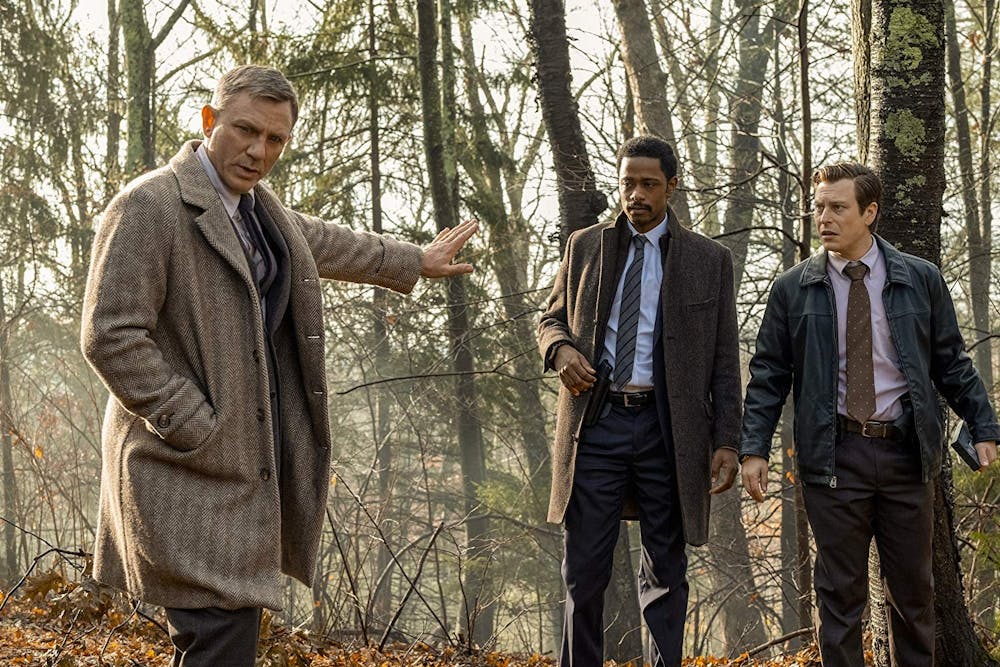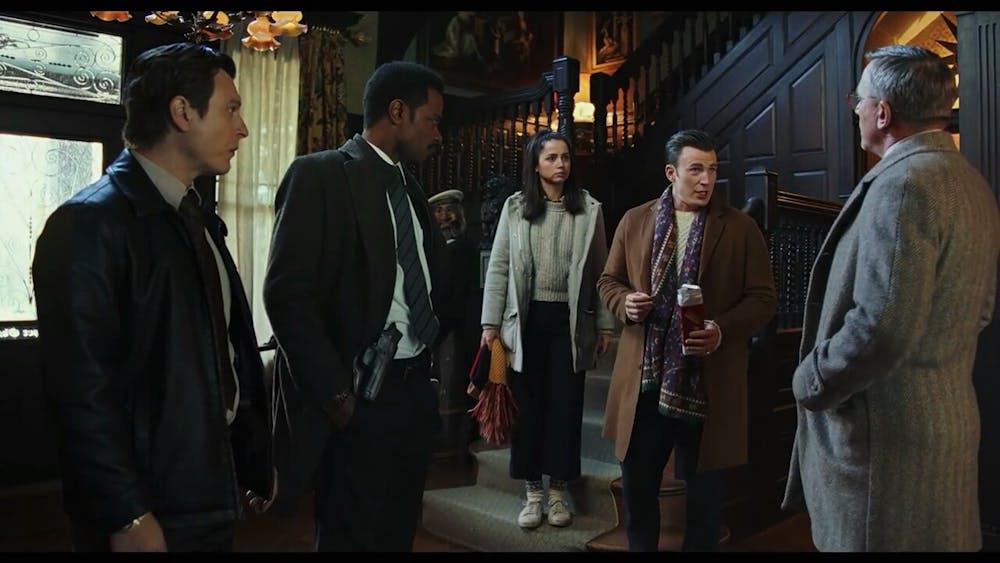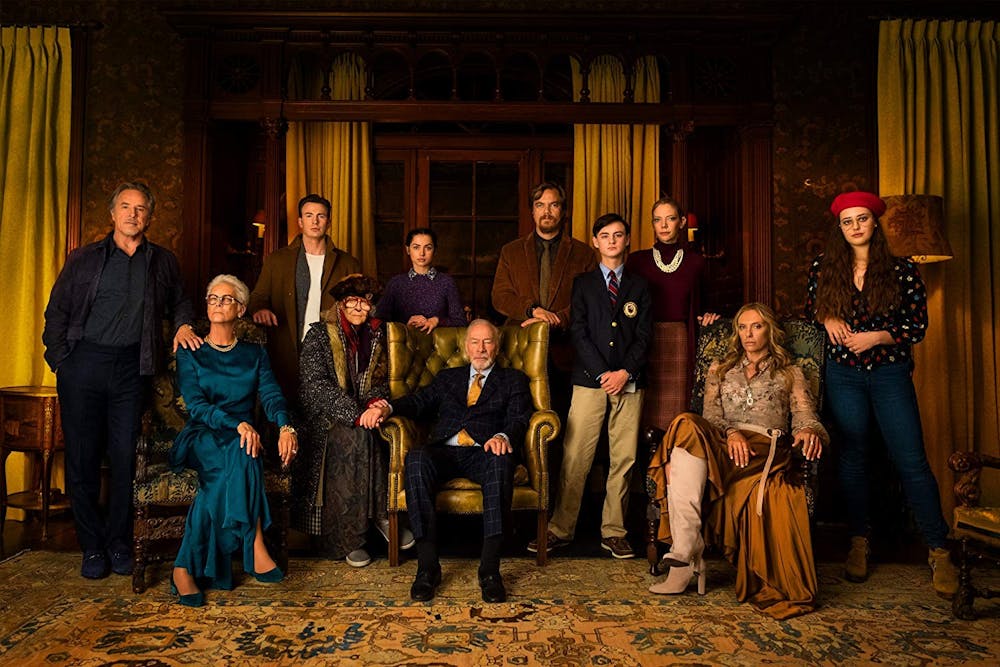Over the past 15 years or so, you might have heard of a writer/director named Rian Johnson. His first film, 2005’s Brick, was a small, independent venture that soon became a cult classic, and helped to establish Johnson as a unique up-and-comer. His subsequent directorial efforts, such as three episodes of the critically acclaimed show Breaking Bad and the breakout film Looper, practically made Johnson into a name that people were familiar with, but wasn’t quite a household one yet.
That all changed in 2017, when his newest film, Star Wars: The Last Jedi released. While it did receive acclaim from critics, it completely divided the franchise’s fanbase. While many fans considered it to be one of the best—if not the best—Star Wars film, others outright hated it, believing that Johnson took far too many creative liberties with iconic characters, and even went so far as to say that the director “ruined their childhoods.” Despite the polarizing response to The Last Jedi, Johnson’s career continued to flourish, having secured a writing/directing credit on a new Star Wars trilogy (which has yet to be officially announced).
In the meantime, Johnson has gone back to making original films, such as Knives Out. The film, acting as a homage to classic “whodunits” from the 1970s and 1980s, follows a private investigator named Benoit Blanc, played by Daniel Craig. Blanc’s task is to figure out who was responsible for the death of Harlan Thrombey—played by Christopher Plummer—the wealthy head of the Thrombey/Drysdale family. With crafting this caper, Johnson definitely stuck the landing—albeit with a couple minor stumbles.
Greatness from slow beginnings

Image from IMDb
While I would consider the first act (the first thirty to thirty-five minutes) to be one of the film’s weaker elements, it possesses many moments where it was very well-executed and illustrates its importance toward the overall story; for starters, the opening credits. Set to the backdrop of composer Nathan Johnson’s whimsical score, the film introduces the beautiful and secluded mansion in which the Thrombey family resides. Excellent camera work is on display here, showing off many of the wonderfully decorated rooms that the home contains. Minutes later, we are treated to a surprisingly graphic depiction of Harlan Thrombey’s corpse in the attic, with a bloody arc across his neck.
Shortly after this, the film’s pacing slows down considerably, and we are gradually introduced to the members of the Thrombey/Drysdale clan, such as Harlan’s son-in-law, Richard Drysdale (played by Don Johnson) and Harlan’s daughter-in-law, Joni Thrombey (played by Toni Collette). I found Joni’s introduction to be extremely amusing, as she was an influencer on Instagram and a lifestyle guru, which may or may not be parodying Gwyneth Paltrow and her “Goop” brand. Now, while the pacing here was a bit idle, I couldn’t help but to be engaged. The more I learned about these characters and the possible circumstances behind Harlan’s death, the more I found myself actively enjoying what I was watching, with a smile growing on my face.
All in the family

Image from IMDb
What truly elevates Knives Out is its cast, and with the likes of Daniel Craig, Chris Evans, Jamie Lee Curtis, and Michael Shannon, I expected nothing less. Most of the cast members—save for a few that either had little screen time or weren’t as developed—bring their A-game here. Daniel Craig brings a comical, Southern drawl to Benoit Blanc. Chris Evans brings a snarky smugness to his character, Hugh “Ransom” Drysdale. Toni Collette brings a hilariously ditzy charm to Joni Thrombey. With such a unique collection of characters that were delightfully performed, the Thrombey/Drysdale family were brought to dazzling life.
One performance that truly surprised me was that of Ana de Armas, of Blade Runner 2049 fame. She plays Marta Cabrera, the good-hearted caretaker of Harlan Thrombey. The film greatly focuses on her character—where we learn that she is the daughter of an undocumented immigrant—and works as a caretaker to support her family. Armas brought a significant emotional weight to the film, portraying Marta in such a warm-hearted and innocent light. As a result of this, it was very easy to empathize with her when the circumstances involving her grew more and more chaotic.
Surely you can’t be serious

Image from IMDb
What makes Knives Out stand out from your traditional murder-mystery is that it isn’t an extremely serious one. In fact, the film utilizes a lot of effective comedy, namely through the characters and their personalities. For example, there is a scene where Linda Drysdale, Jamie Lee Curtis’s character, outright begins to swear at Marta, due to an important plot development. While Linda’s actions were off-putting to see, especially since Marta had a strong bond with the family, it was comedic in the manner in which Curtis performed it. Another strong moment of comedy was when the family was bickering amongst themselves over Harlan’s will, and hilariously risqué secrets about Jacob Thrombey (played by It star Jaeden Martell) were revealed. Overall, Johnson’s use of comedy helped to create an off-kilter tone to the film, which was extremely beneficial in the long run.
However, the humor does have its flaws. While it comes more naturally when based upon characters interacting and their personalities conflicting, there are other times when a character just spouts an awkward one-liner out of nowhere. Not only were they unfunny, but they caused the film to practically grind to a halt just so the joke can be told. This problem also occurs when the film alludes to modern-day things, such as Google, Instagram, and even the Trump Administration, which caused jarring but small tonal shifts.

Images: IMDb
Featured Image: IMDb
For more entertainment related content, visit us at Byte BSU!




















